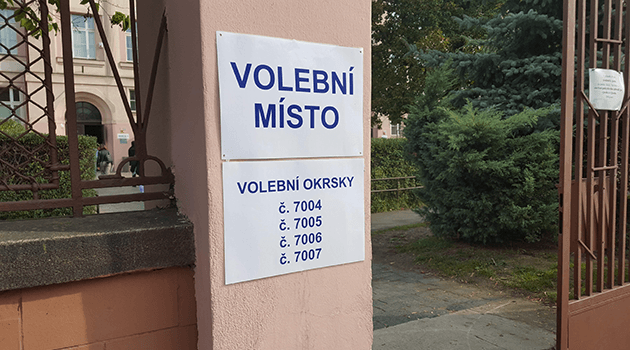European Romani activists say Roma must get involved in political life as candidates and voters to participate in crucial decisions about public finances

The Euractiv news server reports that activists of Romani origin working at the European level believe that it is important for Romani men and women to get involved in local politics and in the decision-making about public spending because their involvement is crucial to addressing the situation of the Romani minority in Europe. Here in the Czech Republic, elections for representatives to be seated on municipal assemblies will take place from 23-24 September.
The involvement of Romani people in political life is one aspect of the EU Roma Strategic Framework on equality and other matters which the European Commission is promoting, the aims of which are meant to be achieved by 2030. Romani people should participate more in political life at the local, regional, national and EU-wide level, and their participation in elections both as candidates and as voters should increase, as active civic engagement by Romani people remains at a low level throughout the EU still.
According to a survey of Romani people residing in five EU Member States published in 2021 by the EU Fundamental Rights Agency (FRA), just 23 % said they take an interest in politics. Just 29 % of the Romani respondents surveyed said they participate in local elections, according to FRA.
The Council of Europe human rights organization, to which all EU Member States belong, is running a joint programme with the EU called ROMACT to support political participation by Romani people in Bulgaria and Romania, taking into consideration the fact that as a group, Romani people are not homogenous. “We keep our community action groups not officially established, not monolithic, but as something organic and open, so anybody can come and go, because otherwise, you end up with the usual suspects,” Ana Oprisan, the program manager for ROMACT, told Euractiv.
The Council of Europe is also working directly with Romani people in the field to prepare them to participate in local politics. “We basically teach people how to participate in a local council meeting,” Oprisan said.
According to Isabela Mihalache, the advocacy officer for the European Roma Grassroots Organizations Network (ERGO), experts of Romani origin play an essential role at the local level in Romania. “Whether the community needs water or a sewage canal or very basic utilities, it is much easier to claim those needs by having this form of representation at the municipality,” she emphasized.
It is also important to involve Romani men and women in the decision-making about local public spending. “That’s not just because we need to be inclusive, but also because they know best what the problem is,” Mihalache explained.
“Sometimes they also might have an idea of what the solution is because they have tried probably in a more informal way to solve it, but they didn’t have all the support and all the funds that are needed,” the ERGO advocacy officer said. In the Western Balkans, where discrimination against Romani people is still high, an entity co-funded by the EU and the Open Society Foundations called the Roma Integration Regional Cooperation Council (RCC) is working on a project to address how public spending budgets serve Romani residents.
The purpose of that project, called Roma-responsive budgeting, is to ensure socioeconomic strategies take the needs of Roma into account. According to Aleksandra Bojadjieva, RCC strategic expert, public budgets that take the needs of Romani residents into account can also aid with checking on how public resources are spent and who actually benefits from them.
